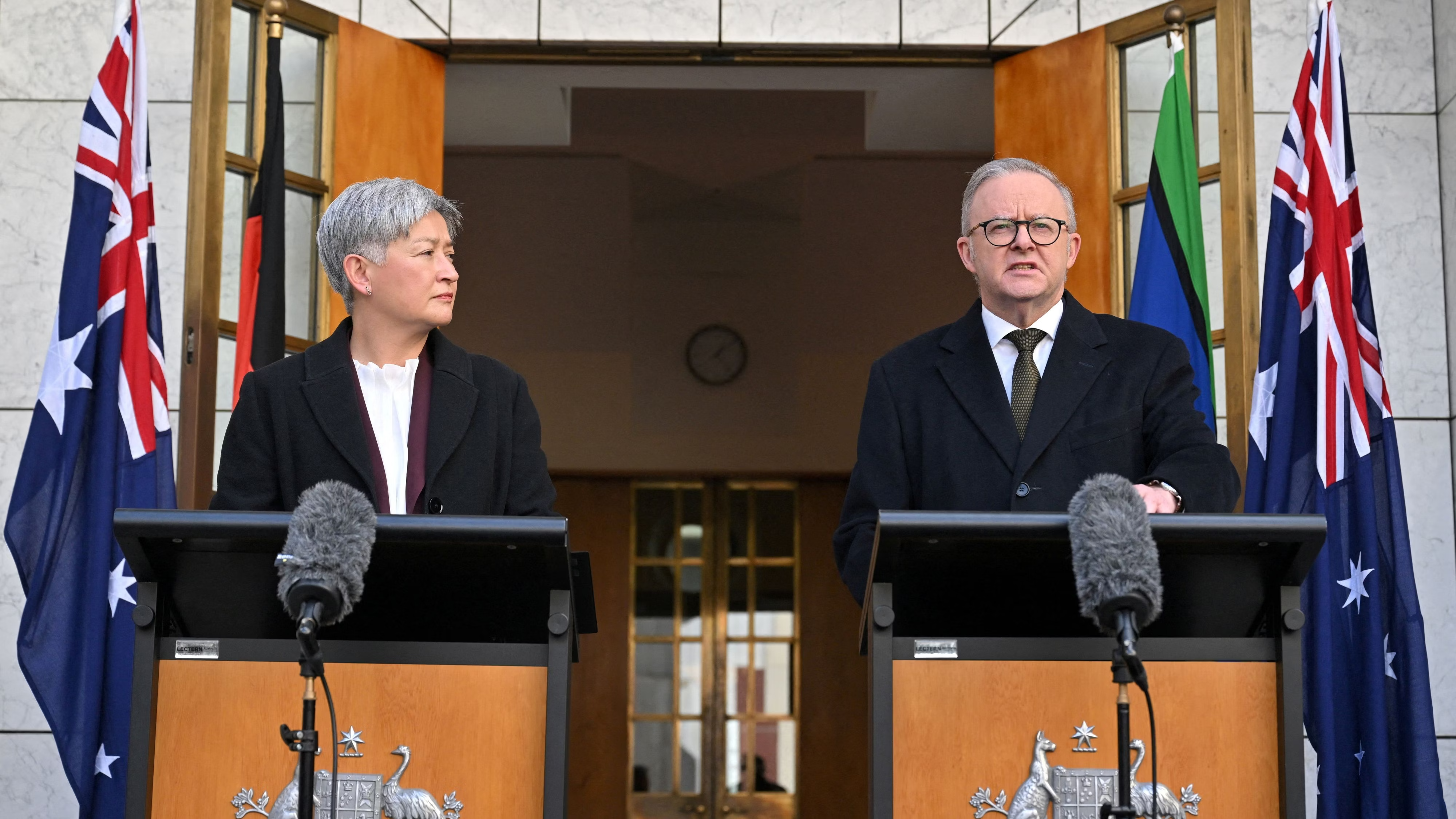The conversation on Australia’s economic future has been dominated this week by one word: productivity. The week began with the Chair of the Productivity Commission, Ms Danielle Wood, addressing the National Press Club, setting the tone for a major policy debate. This was followed by a three-day Economic Reform Roundtable at Parliament House, where Prime Minister the Hon Anthony Albanese MP and Treasurer the Hon Dr Jim Chalmers MP joined senior bureaucrats, union representatives, and industry leaders to discuss the nation’s path forward on economic resilience, productivity, and budget sustainability.
Join us at Nexus APAC as we unpack the key takeaways from this week’s productivity roundtable and continue to delve into insights of the 48th Parliament’s new members and senators.
Day 1 – Economic Resilience
Day one saw sharp debate over a union proposal for a new levy on business to fund worker training, strong calls for “quick wins” in recognising overseas and interstate qualifications, and agreement on the need to ensure productivity gains are shared with workers. Prime Minister Anthony Albanese encouraged participants to “think big,” highlighting artificial intelligence as a long-term reform priority. AI dominated the day’s discussions, with consensus that building national confidence and capability in the technology will be critical to strengthening Australia’s future workforce – while also balancing the need for immediate, practical outcomes.
Day 2 – Productivity
Day two of the roundtable centred on unlocking investment and cutting red tape. There was broad consensus on mobilising superannuation capital for housing and renewables, streamlining construction rules, and modernising environmental approvals. Treasurer Jim Chalmers confirmed the government is considering reforms to the Your Future, Your Super benchmark, after industry leaders warned it is constraining capital for major projects.
On housing, participants – including NSW Treasurer, the Hon Daniel Mookhey MLC, representing the Board of the State and Territories Treasurers – supported a pause on non-essential elements of the National Construction Code to expedite approvals. Meanwhile, discussions on reforming the Environmental Protection and Biodiversity Conservation Act gained rare progress, with both business and environmental groups signalling support for a new federal Environmental Protection Agency, though debate remains over the scope of its decision-making powers.
Day 3 – Budget Sustainability and Tax Reform
The final day of the roundtable placed tax reform at the centre of debate. Treasurer Ted O’Brien MP reportedly expressed discontent toward Treasurer Jim Chalmers over government expenditure, but the broader focus was on the long-term sustainability and fairness of Australia’s tax system.
Grattan Institute CEO Aruna Sathanapally warned that without reform, younger and working Australians will bear a disproportionate tax burden as concessions for retirees and the wealthy grow. She urged changes including reducing superannuation tax breaks, cutting the capital gains discount, tightening family trust arrangements, and considered a rise in the GST alongside compensation for low-income households.
The ACTU called for greater equity through a minimum 25 per cent tax for millionaires, while ANU economists suggested a flat tax on savings and investments to simplify the system. With Treasury research showing concessions currently favour older and higher-income Australians, the roundtable highlighted the mounting pressure to deliver intergenerational fairness and secure sustainable revenue reform. The Treasurer has hinted at tax reform and set three principles to guide this:
- A fair go for working-age people.
- An affordable way to incentivise business investment to promote capital.
- Making the tax system simpler and more sustainable to fund government services for an ageing population.
So, What Does This All Mean?
Well, it looks as if we might get some tax reform, with the Treasurer putting tax on the government’s medium-term agenda and placing it as a priority for this economic reform roundtable.
A key challenge for the Federal Government will be how they involve the States as they progress tax reform, such as the road-user charge for electric vehicles, which will require involvement with the State Government car registration systems.
Ultimately, we should expect to see some of the large policy reform items discussed at the roundtable taken to the next Federal Election. This would provide the government with a mandate to tackle some of the more complex and structural changes to our tax and economic systems.
Stay tuned for more Nexus APAC insights on this, as the Treasurer provides an update on key actions that the Government will take.
Showcasing the New Faces in Parliament
Alongside our coverage of the roundtable, we continue our series showcasing the New Faces in Parliament. Over the past few weeks, we have highlighted first speeches as a window into each parliamentarian’s priorities, values, and lived experiences, and how these will shape their contributions to public life.
Ms Carol Berry MP, Member for Whitlam – Australian Labor Party
In her first speech, Ms Berry emphasised values of integrity, social justice, and community service, framing her political purpose around fairness and opportunity. She highlighted the importance of public systems, including education, health, aged care, and the NDIS, as foundational to a decent society and pledged to be a strong defender of them.
Ms Berry stressed the need for environmental stewardship, advocating for renewable energy and the protection of natural landscapes. She emphasised the importance of local communities, volunteering, and civic engagement in fostering social cohesion.
Her speech also reflected a deep commitment to inclusion, particularly women, marginalised groups, and people with disabilities, drawing on her professional experience in advocacy and public interest work. Ms Berry framed her approach to politics around empathy, action, and accountability, aiming to amplify community voices, tackle inequality, and create opportunities for all Australians.
Mr Jamie Chaffey MP, Member for Parkes – The National Party of Australia
In his first speech, Mr Chaffey emphasised service, resilience, and community responsibility, drawing on personal experiences that shaped his commitment to regional Australia. He highlighted the unique challenges of representing a vast electorate, stressing the importance of supporting local businesses, infrastructure, water security, and regional economic development.
Mr Chaffey spoke about the significance of practical, evidence-based policymaking in strengthening communities, attracting young families, and maintaining essential services in education, health, aged care, and public safety. He emphasised the crucial role of transport and infrastructure projects, including Inland Rail, in supporting regional industries and connecting communities.
He also stressed the need for strong, prepared national defence and expressed concern over the social and economic impacts of large-scale renewable energy developments in regional areas. Chaffey framed his parliamentary role around listening, advocacy, and persistence, aiming to ensure regional voices are heard and communities can thrive sustainably.
Mr Tom French MP, Member for Moore – Australian Labor Party
In his maiden address, the newly elected Labor MP for Moore delivered a heartfelt first speech that traced his journey from electrician and publican to lawyer and parliamentarian. Drawing on his working-class roots, he spoke of resilience, fairness, and the dignity of work, while also weaving in his passion for music and culture as forces for community connection. He highlighted the need to invest in apprentices, public education, Medicare, and cultural infrastructure, especially the long-promised Joondalup Performing Arts and Cultural Centre.
Mr French also reflected on his diagnosis of chronic kidney disease at the age of 25 and the eventual need for a kidney transplant as personal motivation to ensure all Australians have access to healthcare. He also used this as an opportunity to pledge his support to defending Medicare, saying he was “lucky to live in a country that didn’t put a price on [his] future.’
His address set out a vision for Moore as both a cultural hub and a fairer community, while reminding young Australians that politics is not reserved for those who “fit the mould.”
Next week, Nexus APAC will continue to track both the big reforms and the new voices driving them.
Image credit: Martin Ollman/NewsWire
Latest posts by Nexus APAC (see all)
- Examining Medicine Shortages in Australia - February 7, 2026
- The Secretaries of Federal Departments - January 31, 2026
- Merry Christmas from the Nexus APAC Team - December 19, 2025



